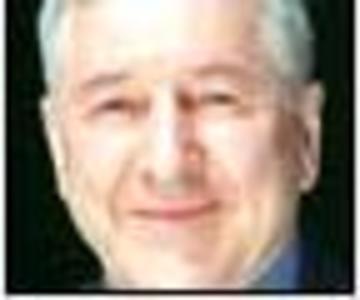Amazing Nicolas Sarkozy. After four decades during which France's presidents expressed ambivalence toward Canada, even sometimes conspiring to promote Quebec's secession, President Sarkozy
is proving to be Canada's staunch friend.
He supported doubly Canada's policy on Afghanistan at the NATO summit last week in Bucharest. He not only offered 700 soldiers beyond the 1,500 that France already had there, making it possible for the United States to meet Canada's demand for 1,000 additional fighters in Kandahar. At a press conference Thursday with Germany's Angela Merkel, he passionately defended the commitment to defeating the Taliban insurgency. "If we want to leave Afghanistan one day, we must win [there] today," he said.
In both France and Germany, opposition to posting French and German troops in Afghanistan is widespread. So the President's commitment cannot be dismissed as opportunistic or as subordination to George Bush. That is an important message to Canada, and especially to Quebec. For the President of France to endorse the war in which Canadian troops are engaged softens opposition to it. So it was in 1991 with the Gulf War against Iraq.
Mr. Sarkozy breaks with vested traditions. He declared himself a friend of the United States on a visit to Washington, though the French, particularly since the 2003 invasion of Iraq, have been anti-American. Visiting Britain in March, Mr. Sarkozy proposed an entente amicable, seducing the very country (with the help of his new wife, Carla Bruni) to which Charles de Gaulle had, in 1967, refused admission to the European Economic Community.
For Canada, the best is yet to come. In Paris, former prime minister Jean-Pierre Raffarin, now heading France's participation in the 400th anniversary celebrations of the founding of Quebec, made statements that have set Quebec's political class abuzz.
He told journalists that, when Mr. Sarkozy comes to Quebec in October for the summit meeting of the 55 members of la Francophonie, he will say "something that is very important." On what subject? On France's relations with Quebec and with Canada. "I think that Nicolas Sarkozy hopes to maintain the privileged relation with the province, but obviously within a strategy of non-opposition to Canada," he said.
Then, came the contentious words: "Nicolas Sarkozy is against the 'neither-neither,' and he will express himself clearly on the subject."
There was immediate consternation in nationalist circles. The "neither-neither" formula has been the cover for French politicians' relations with Quebec ever since the Parti Québécois came to power in 1976, on a promise to hold a referendum on secession.
The formula was coined by Alain Peyrefitte, who had been de Gaulle's justice minister and, above all, his personal emissary in his manoeuvres to promote Quebec's secession. After de Gaulle stepped down in 1969, French interest in the Quebec issue faded, but revived forcefully when René Lévesque came to power. "Victory of the white niggers" was the headline in France's Le Monde newspaper. Then-president Valéry Giscard d'Estaing invited Mr. Peyrefitte to join his cabinet and put him in charge of the Quebec file.
At a press conference with Mr. Lévesque in 1977, Mr. Peyrefitte explained that when it comes to Quebec and Canada: "La position de la France se situe entre la non-ingérence et la non-indifférence." France positions itself, he was saying, between non-meddling and non-indifference.
Thereafter, the formula of "neither meddling nor indifference" was repeated over and over, often shortened to "neither-neither" or "ni-ni".
The formula's virtue was its masterful ambiguity. In fact, leading up to the 1980 Quebec referendum, French politicians and diplomats worked behind the scenes trying to help the PQ win its referendum. The "non-meddling" was a diplomatic lie. President Giscard treated René Lévesque as an honoured head of state when the premier visited France in 1977 (I covered that trip for The Globe and Mail). He promised him that France would "accompany" Quebec wherever it chose to go. When prime minister Pierre Trudeau visited, he was ostentatiously slighted.
Frédéric Bastien has documented the recurrent moves by the French to promote Quebec's secession. In 1995, premier Jacques Parizeau was counselled on how to ensure international recognition by former president Giscard. President Jacques Chirac had prepared a statement in the event a bare majority voted Oui: "The sovereignty of Quebec is a fact, all that it lacks is its juridical expression." He proposed to rally states of la Francophonie to recognize Quebec's independence.
As recently as last year, Ségolène Royal, the Socialist candidate for the presidency, met with then-PQ leader André Boisvert and declared "the values that we share, that is, the sovereignty and liberty of Quebec." Challenged on television the next day, she replied: "I displayed neither meddling nor indifference."
Mr. Sarkozy, will apparently dismantle the misleading negatives and bring forth a policy toward Canada that can stand the light of day.
***
WILLIAM JOHNSON, Author and a former president of Alliance Quebec
Vive le Canada!
Nicolas Sarkozy plans to undo the diplomatic charade and fully embrace the country
France-Québec : fin du "ni-ni"?

William Johnson53 articles
William Johnson, a Quebec journalist, is a former president of Alliance Quebec


















Laissez un commentaire Votre adresse courriel ne sera pas publiée.
Veuillez vous connecter afin de laisser un commentaire.
Aucun commentaire trouvé